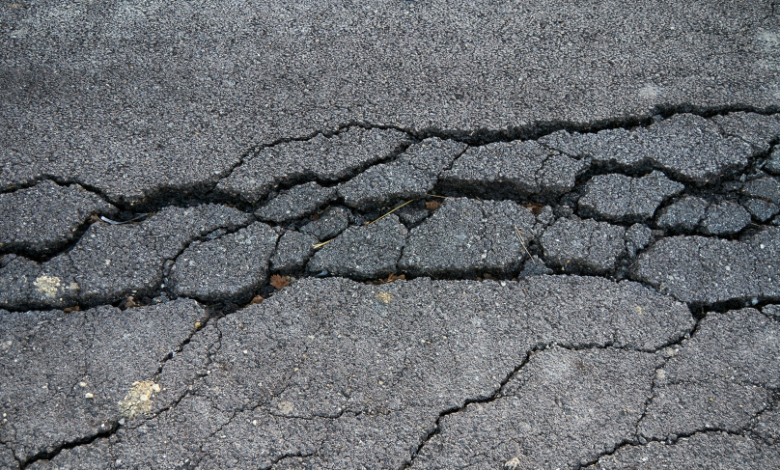Common Causes of Asphalt Driveway Damage (and How to Prevent Them)

Asphalt driveways are known for their smooth finish, durability, and cost-effectiveness. They’re a preferred choice for many homeowners seeking a long-lasting, visually appealing surface. However, even the strongest materials can deteriorate over time if not properly maintained. Understanding the common causes of asphalt driveway damage and how to prevent them is key to preserving its condition for years to come. Whether you’re caring for asphalt driveways brisbane or anywhere else, the following insights apply universally.
1. Poor Drainage
One of the most common culprits behind asphalt deterioration is water. If your driveway lacks proper drainage, water can pool on the surface or seep into small cracks. Over time, this moisture weakens the base layer, leading to soft spots, potholes, and eventual crumbling.
Prevention Tip: Ensure your driveway is sloped slightly to allow rainwater to flow away easily. If puddles tend to form, consider installing drainage channels or regrading the surface. Keeping gutters and the surrounding areas clear of debris will also prevent overflow from damaging your asphalt.
2. Heavy Loads and Excessive Traffic
While asphalt is flexible, constant pressure from heavy vehicles such as trucks, RVs, or trailers can cause depressions or ruts. This pressure can also accelerate the breakdown of the sub-base beneath the surface, especially if the driveway wasn’t built to support such weight.
Prevention Tip: If you regularly park heavy vehicles on your driveway, ask your contractor to reinforce the base layer with additional gravel or thicker asphalt. For residential areas, distributing weight by alternating parking spots can also reduce stress on specific sections.
See also: Design Meets Durability: Choosing the Perfect Garage Door for Forster Homes
3. UV Exposure and Oxidation
Sunlight may not seem like an immediate threat, but ultraviolet (UV) rays slowly break down the asphalt’s binding agents. This oxidation process makes the surface brittle and gray, causing small cracks that eventually widen over time.
Prevention Tip: Sealcoating is your best defense. Applying a protective seal every few years helps protect against UV damage, moisture, and chemicals. Not only does it improve the appearance of your driveway, but it also extends its lifespan.
4. Freeze-Thaw Cycles
In regions that experience temperature swings, freeze-thaw cycles can wreak havoc on asphalt. When water seeps into small cracks and freezes, it expands, widening the gaps. Once it thaws, the process repeats—gradually turning minor cracks into major potholes.
Prevention Tip: Regularly inspect your driveway for cracks, especially before winter. Use a quality crack filler or cold patch product to repair small openings before they worsen. Preventing water infiltration is the most effective way to avoid freeze-thaw damage.
5. Improper Installation
Even high-quality asphalt can fail prematurely if it wasn’t installed correctly. A weak sub-base, poor compaction, or inadequate materials can all lead to uneven surfaces, early cracking, and drainage problems.
Prevention Tip: Always hire a reputable contractor with experience in asphalt paving. Make sure the sub-base is well-prepared and compacted, as this forms the foundation for your driveway’s longevity. It’s also wise to get a written warranty that covers both materials and workmanship.
6. Chemical Spills and Oil Leaks
Oil, gasoline, and other automotive fluids can dissolve the binder that holds asphalt together. These chemicals soften the surface, leading to disintegration and unsightly stains.
Prevention Tip: Clean up spills immediately using absorbent materials like kitty litter or baking soda. For deeper stains, use a degreaser designed for asphalt. Sealing your driveway can also reduce the risk of chemical penetration.
7. Tree Roots and Vegetation Growth
While trees add beauty to your property, their roots can cause significant problems for asphalt surfaces. Roots growing beneath the driveway can push upward, creating cracks, bumps, or uneven sections. Weeds sprouting through cracks can also widen gaps and allow water to infiltrate.
Prevention Tip: Before installing a driveway, avoid planting large trees nearby. If you already have existing vegetation, trim roots and apply a herbicide to prevent growth beneath the surface. Routine weeding also helps maintain a clean, damage-free appearance.
8. Neglecting Regular Maintenance
Even the best asphalt driveways can deteriorate quickly without consistent care. Ignoring small issues like cracks, fading, or minor holes can lead to expensive repairs down the line.
Prevention Tip: Develop a maintenance routine that includes cleaning, sealing, and promptly repairing minor damage. A well-maintained driveway not only looks better but also adds value to your property. Homeowners who stay proactive can easily double the lifespan of their asphalt surfaces.
Final Thoughts
Asphalt is a durable and reliable material, but it’s not immune to wear and tear. The key to a long-lasting driveway lies in prevention and maintenance. From managing water runoff to applying regular seal coats, each small step adds up to years of added strength and beauty.
By taking a proactive approach, homeowners can keep their asphalt driveways brisbane looking smooth, clean, and strong for decades. A little care today ensures a safe and welcoming entrance to your home tomorrow.




